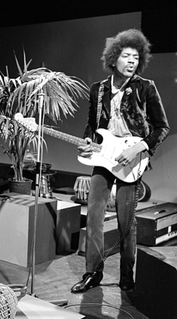A Quote by James Baldwin
You write in order to change the world.
Quote Topics
Related Quotes
You write in order to change the world, knowing perfectly well that you probably can't, but also knowing that literature is indispensable to the world... The world changes according to the way people see it, and if you alter, even by a millimeter, the way... people look at reality, then you can change it.
We no longer even understand the question whether change is by itself good or bad, ...We start out with the axiom that it is the norm. We do not see change as altering the order... We see change as being order itself - indeed the only order we can comprehend today is a dynamic, a moving, a changing one.
I had a student once come up to me and we were talking about this incident, and, of course, I never had the right thing to say. But later on, I realized I should have said: Don't write about trying to change the world, just write about a changed world or a world that's not changing. Let that do the work.
Out of these troubled times, our fifth objective - a New World Order - can emerge. . . Now, we can see a New World Order coming into view. A world in which there is a very real prospect for a New World Order. . .A world where the United Nations, freed from a Cold War stalemate, is poised to fulfill the historic vision of its founders.


































